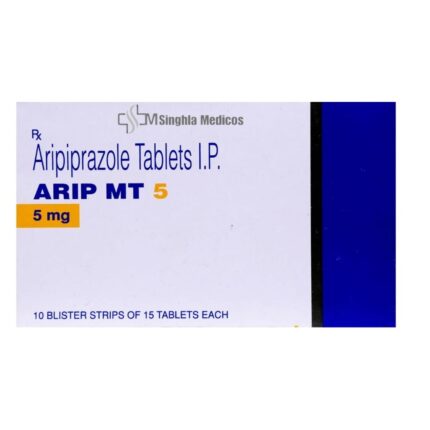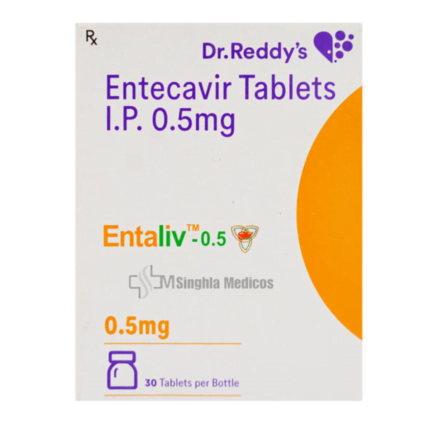

Arimidex 1mg Tablet
₹7,556.00 Original price was: ₹7,556.00.₹6,800.40Current price is: ₹6,800.40.
![]() Prescription Required
Prescription Required
Salt : Anastrozole (1mg)
Manufacturer : AstraZeneca
Packing : 28 tablets in 1 box
PRODUCT INTRODUCTION
Arimidex, with its active ingredient anastrozole, is a potent medication widely used in the management of breast cancer. Each Arimidex 1mg Tablet contains precisely one milligram of anastrozole, a non-steroidal aromatase inhibitor. Aromatase is an enzyme that plays a pivotal role in the biosynthesis of estrogens, specifically converting androgens into estrogens in the body. By inhibiting this enzyme, Arimidex effectively reduces estrogen levels, which is crucial in the treatment of certain types of breast cancers that thrive on estrogen.
Manufactured and marketed by various pharmaceutical companies globally, Arimidex comes in a tablet form, designed for oral administration. The tablets are typically small, white, and biconvex, making them easy to ingest. Anastrozole itself is characterized by its high selectivity and potency, offering a targeted approach in cancer therapy.
USES of Arimidex 1mg Tablet
Arimidex 1mg Tablet is primarily prescribed for the treatment of breast cancer in postmenopausal women. It is particularly effective against hormone receptor-positive types of breast cancer. The main uses of Arimidex include:
- Treatment of Postmenopausal Breast Cancer: Arimidex is employed as a first-line treatment for hormone receptor-positive breast cancer in postmenopausal women. It is often prescribed following surgery and radiation to reduce the risk of cancer returning.
- Adjuvant Therapy: Besides its use in treating existing breast cancer, Arimidex is also recommended as adjuvant therapy. This means it is used post-surgery to prevent the recurrence of breast cancer by suppressing the hormone levels that could potentially reignite cancer cell growth.
- Advanced Breast Cancer: In cases where the disease has progressed, Arimidex may be utilized to control further spread and manage symptoms in a palliative care setting.
The effectiveness of Arimidex in these uses is well-supported by clinical trials, showing significant benefits in survival rates and cancer recurrence reduction when compared to other estrogen-modifying therapies.
BENEFITS OF Arimidex 1mg Tablet
The benefits of using Arimidex 1mg Tablet are significant in the context of hormone receptor-positive breast cancer management. The key benefits include:
- Reduced Estrogen Levels: By lowering the estrogen levels, Arimidex directly targets the growth mechanism of estrogen-dependent breast cancer cells, which can lead to a reduction in tumor size and a slower progression of the disease.
- Increased Survival Rates: Clinical studies have demonstrated that Arimidex can increase survival rates in postmenopausal women with early-stage breast cancer. Additionally, it has been shown to be more effective than tamoxifen, another commonly used hormone therapy, in certain patient groups.
- Prevention of Recurrence: Postoperative use of Arimidex significantly lowers the risk of breast cancer recurrence, an essential factor in long-term cancer management.
- Well-Tolerated: Compared to traditional chemotherapy, Arimidex is generally well-tolerated with a manageable side-effect profile, making it a preferred option for many patients.
SIDE EFFECTS OF Arimidex 1mg Tablet
While Arimidex is beneficial, it is not without its side effects. Commonly reported side effects include:
- Musculoskeletal Pain: Many users experience joint stiffness or pain, and muscle aches, which can be managed with over-the-counter pain relievers or through physiotherapy.
- Bone Health: Long-term use can lead to bone thinning or osteoporosis, necessitating regular bone density monitoring and possibly supplementation or treatment to maintain bone strength.
- Menopausal Symptoms: Symptoms such as hot flashes, mood swings, and night sweats may be intensified due to the lowered estrogen levels.
- Gastrointestinal Issues: Nausea, vomiting, and diarrhea are also possible but generally mild and manageable.
- Increased Risk of Cardiovascular Events: There is some evidence suggesting that the use of Arimidex may increase the risk of cardiovascular events, which requires monitoring throughout treatment.
References
-
Masters SB. Hypothalmic & Pituitary Hormones. In: Katzung BG, Masters SB, Trevor AJ, editors. Basic and Clinical Pharmacology. 11th ed. New Delhi, India: Tata McGraw Hill Education Private Limited; 2009. p. 718.
-
Moy B, Lee RJ, Smith M. Natural Products in Cancer Chemotherapy: Hormones and Related Agents. In: Brunton LL, Chabner BA, Knollmann BC, editors. Goodman & Gilman’s: The Pharmacological Basis of Therapeutics. New York, New York: McGraw-Hill Medical; 2011. pp. 1761-62.
Disclaimer
Singhla Medicos primary intention is to ensure that its consumers get information that is reviewed by experts, accurate and trustworthy. The information and contents of this website are for informational purposes only. They are not intended to be a substitute for professional medical advice, diagnosis, or treatment. Please seek the advice of your doctor and discuss all your queries related to any disease or medicine. Do not disregard professional medical advice or delay in seeking it because of something you have read on Singhla Medicos. Our mission is to support, not replace, the doctor-patient relationship.
Shipping Policy
We ship across India. Note – this is subject to change as per Company Wishes. Packages will be shipped in 24 working hours. we are closed on Sundays and will reach you in the next 2-4 days post shipping. We give the estimated time of delivery on the shipping page. However, these are indicative and depend on our shipping partner.
Delivery
The delivery times are subject to location, distance, and our logistics partners. We are not liable for any delays in delivery by the courier company/postal authorities but will help you track down a package through our partner courier services.
Your purchases may reach you from various locations in more than one package. But rest assured, you will be charged one delivery fee for the entire order. As soon as your package ships, we will email you your package tracking information.
We are bound in coverage by their reach even though we use some of India’s largest logistics companies for shipping. In case your address is in a location not served by them we would contact you to find an alternative solution to make your products reach you.












Reviews
There are no reviews yet.